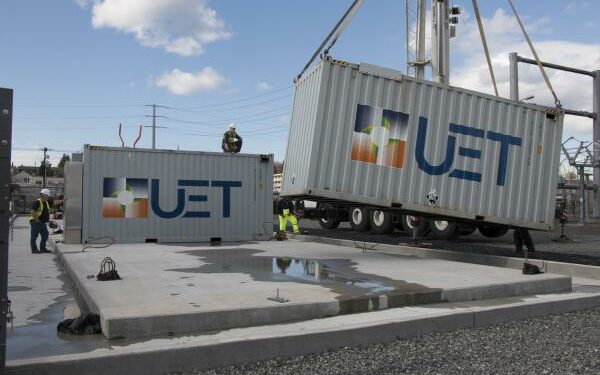US environmental watchdogs have honoured a company that produces a battery based on technology developed at the US Pacific Northwest National Laboratory (PNNL).
UniEnergy Technologies (UET) received a Green Chemistry Challenge Award from the US Environmental Protection Agency for the firm’s advanced vanadium redox flow battery.
The awards recognise chemical technologies that incorporate the principles of green chemistry into chemical design, manufacture, and use.
UET’s battery uses “a new electrolyte chemistry” developed with funding from the US Department of Energy’s Office of Electricity Delivery and Energy Reliability (OEDER).
“The mixed-acid vanadium electrolyte can store 70% more energy and operates over a wider temperature range than conventional vanadium electrolytes,” PNNL said.
According to PNNL, the electrolyte enables UET’s systems to store energy “without experiencing degraded power or energy capacity, work over 20 years, have zero flammability, and be nearly 100% recyclable”.
“UET’s batteries are fully integrated with power electronics and controls, which helps the company’s utility, independent power producer, microgrids and commercial and industrial customers make quick use of the energy storage system,” PNNL said. “The company’s batteries have a lower total cost of ownership than batteries that use other chemistries such as lithium-ion batteries.”
OEDER’s director of energy storage research Imre Gyuk said: “Research at PNNL has led to considerable technical improvements and substantial cost reductions resulting in a commercially viable flow battery. As a result, we can now begin to move towards novel applications requiring longer storage durations.”
Earlier this year, UET installed a 2MW/8MWh flow battery system at a substation (pictured) for the Snohomish Public Utility District in Everett, Washington state, which PNNL said is the “largest containerised flow battery system in the world”.












